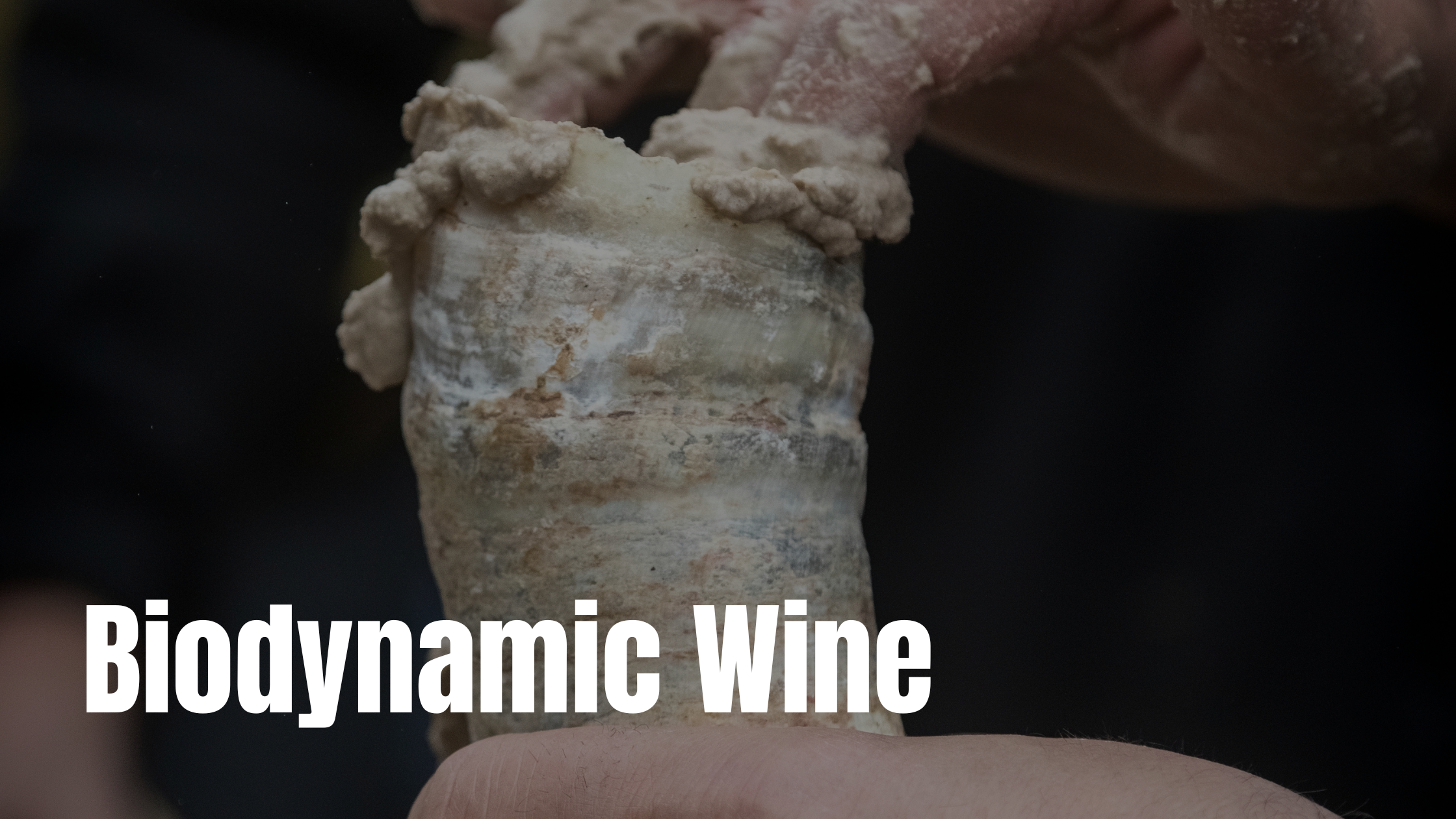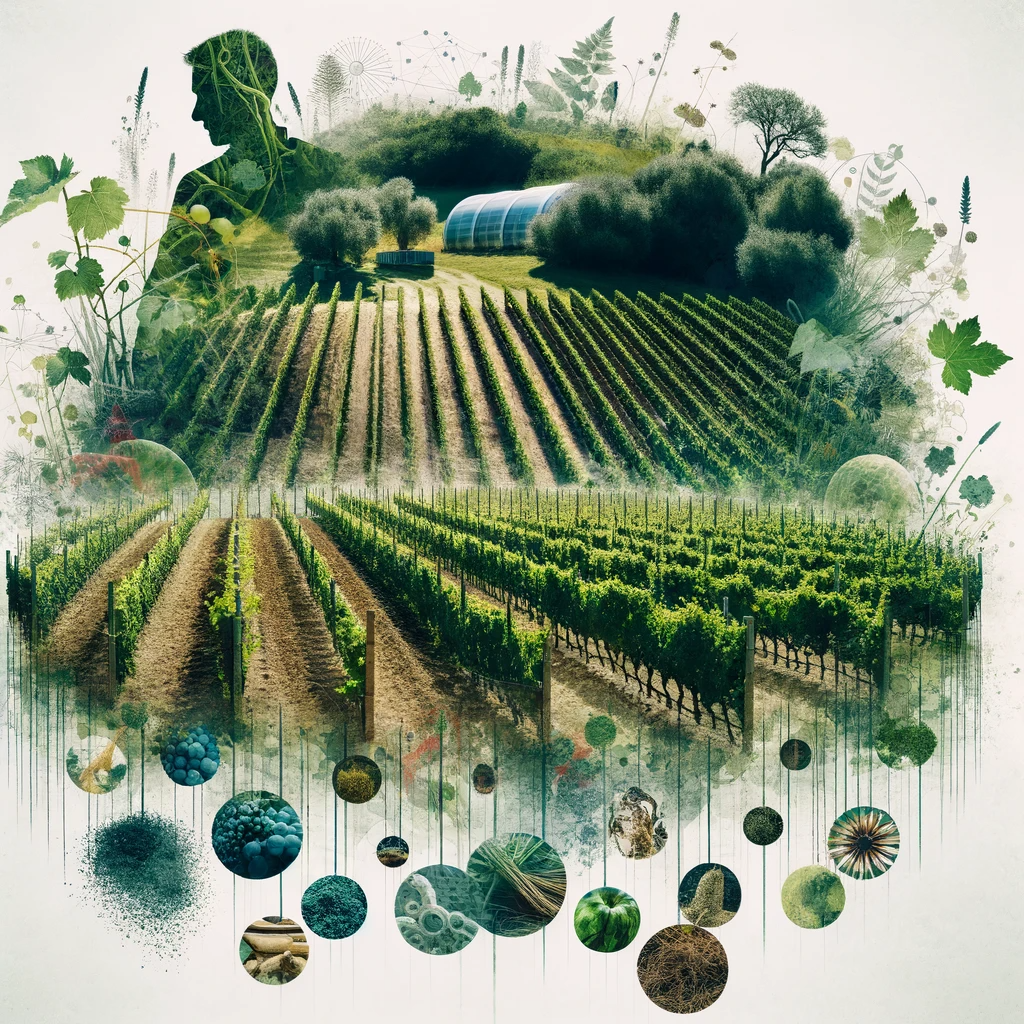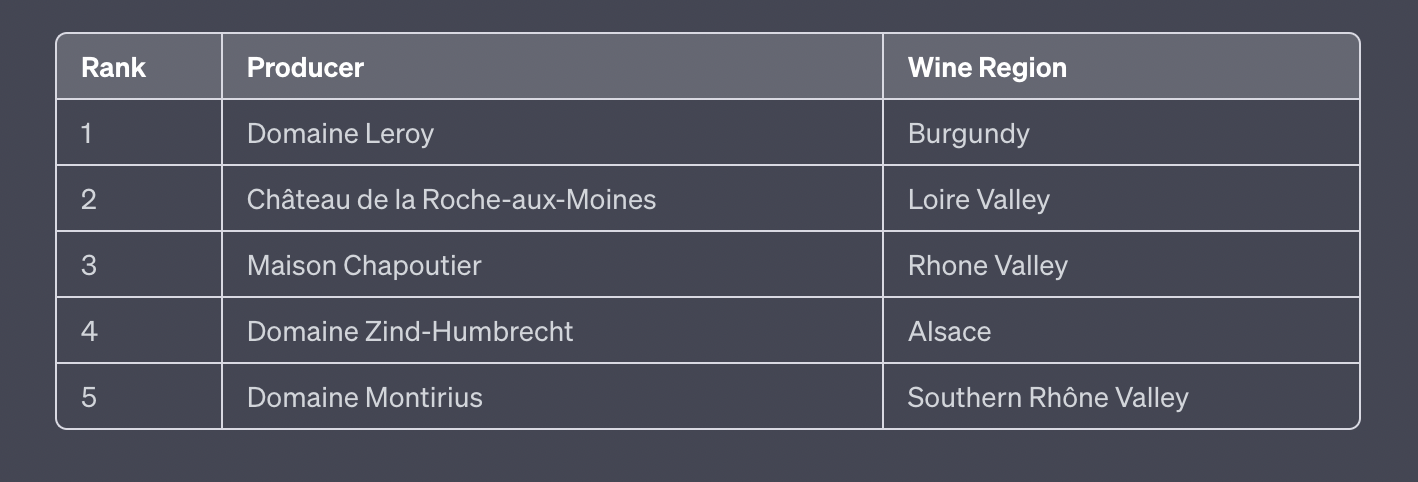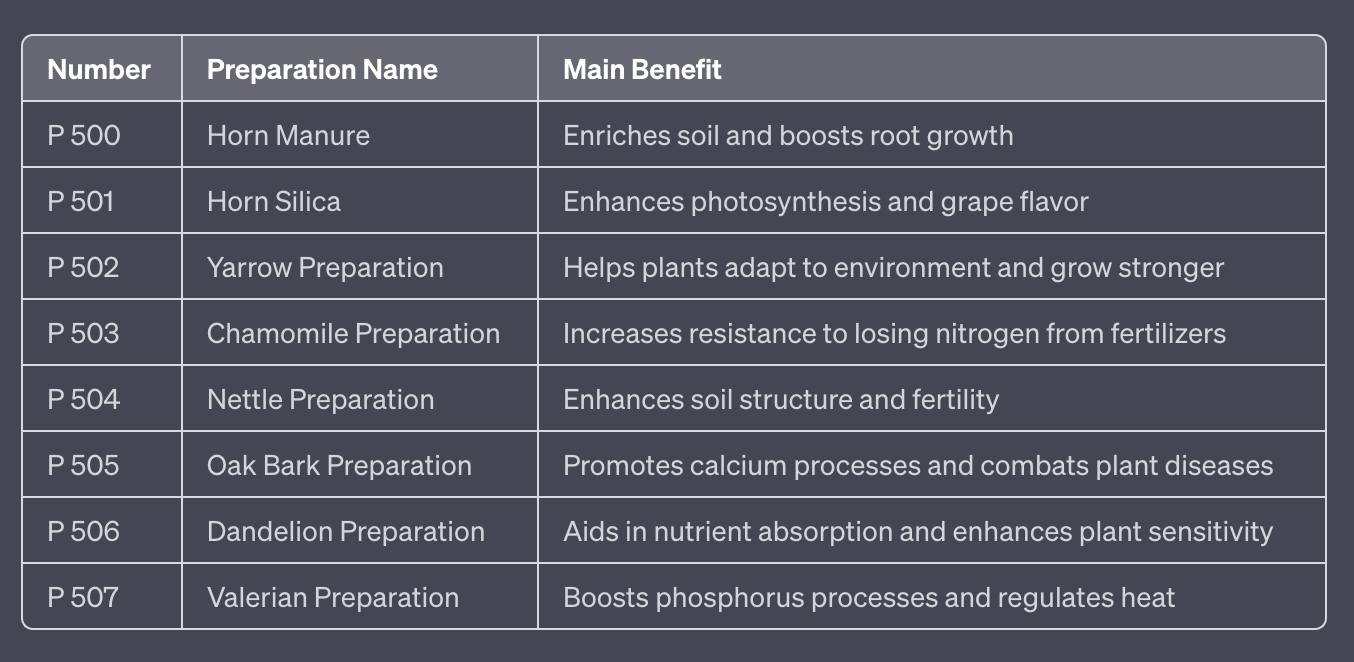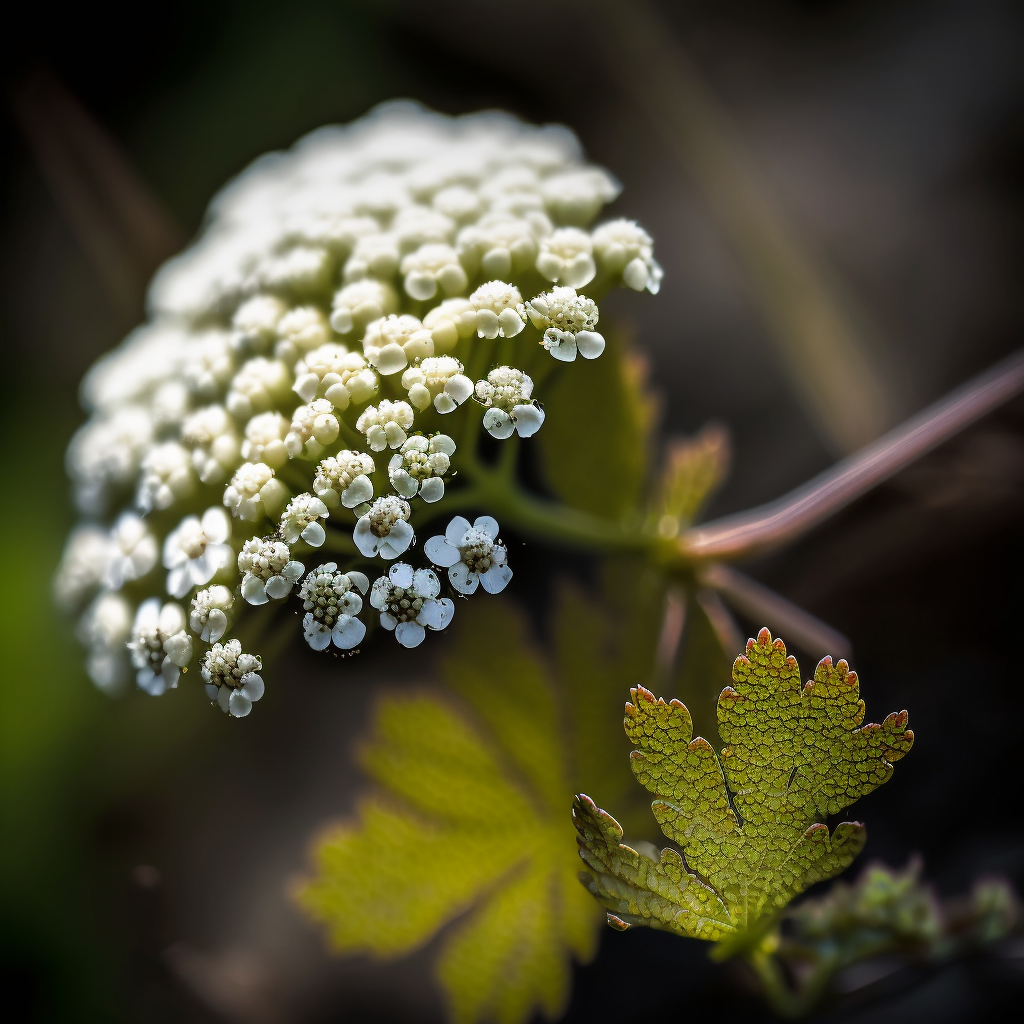Biodynamic Wine: History and Today's Roles in Making Wine
Are you curious about biodynamic wine and what makes it different from other wines?
In this complete guide, we'll talk about the history of biodynamic viticulture, compare it to other types of wine like organic and conventional, and talk about the benefits of drinking biodynamic wine. From the beginning to the end, this guide will explain everything you need to know about biodynamic wine in simple language.
So, whether you want to learn more about wine or enjoy a delicious and environmentally friendly glass, keep reading to learn about biodynamic wine.
Did you know that biodynamic wine has been around for over 90 years? Rudolf Steiner first developed it in the 1920s. Today, it is still a popular way to make wine; many believe it produces a higher quality product.
What is Biodynamic Wine?
Biodynamic wine is a unique winemaking approach beyond traditional organic farming practices. It is based on the principles of Austrian philosopher Rudolf Steiner and his associate Maria Thun, who believed the farm should be viewed as a living organism part of a larger cosmic system.
Biodynamic viticulture seeks to balance the farm's physical and non-physical aspects, incorporating practices such as crop rotation, composting, and natural preparations. These preparations, made from plants, minerals, and animal products, are applied to the soil and plants to enhance their vitality and promote the natural processes in the vineyard.
Lunar and Planetary Cycles
In addition to these practical farming techniques, biodynamic winemakers also consider the lunar and planetary cycles, which are believed to influence the growth and development of the vines. This approach to winemaking is holistic, seeking to create a balance between the vineyard and its surrounding ecosystem and between the physical and spiritual realms.
Today, biodynamic wine is produced in many countries worldwide, with a growing number of winemakers and consumers recognizing its unique benefits. From the origins of biodynamic viticulture to its current status as a respected and innovative approach to winemaking, this practice is truly one-of-a-kind.
Organic or Biodynamic Wine
People often compare biodynamic wine to other types of wine, like organic and regular wines. However, biodynamic wine goes one step further than organic wine by adding spiritual and cosmological elements to the winemaking process.
In addition, organic wine is made from grapes grown without synthetic fertilizers or pesticides. Conversely, chemical pesticides and fertilizers are often used for conventional wine, and the ecosystem around the vineyard may not be considered.
But why should someone drink biodynamic wine?
Many think biodynamic wine is healthier because it is made from grapes without synthetic chemicals. Biodynamic farming methods are also meant to encourage biodiversity and ecological balance, which is good for the environment and nearby people.
Top Countries for Biodynamic Wine
France, Italy, Spain, Switzerland, and the United States have many Demeter-certified biodynamic wine producers. France has some big-name vineyards that follow biodynamic viticulture. Italy and Spain have quite a few certified farms and a lot of biodynamic vineyard areas. Even though Switzerland's wine-producing region is small, it has the largest vineyard area dedicated to biodynamics. The United States is growing in this area, too, with Montinore Estate being one of the largest producers.
Remember that this list doesn't include every country with Demeter-certified producers, just some with significant numbers.
Biodynamic wine can be certified. The best way to tell if a wine is biodynamic is to look for the Demeter certification. This certification lets you know that the wine uses strict biodynamic standards.
Biodynamic Wine Producers of France
Explore the diversity of French vineyards with these top five biodynamic wine producers. From the elegant flavors of Burgundy to the robust profiles of Rhône Valley, these producers stand out with their sustainable practices and exceptional wines.
Here's a chart presenting the producers and their primary wine regions:
Italy's Top Biodynamic Wine Producers
From the sunny coasts of Sicily to the fertile lands of Puglia, here are five of Italy's top biodynamic wine producers. They're making waves in regions across the country with their commitment to sustainable practices, high-quality wines, and noteworthy accomplishments in the field.
Occhipinti, Giancarlo Ceci (Agrinatura), Cantina Giardino, Frano Terpin, and Radikon are some of Italy's top biodynamic wine producers. Occhipinti makes a lot of biodynamic wine every year. Giancarlo Ceci was one of the first to make organic wine in Italy. Cantina Giardino, Frano Terpin, and Radikon are well-known for their natural wines. Remember, this list doesn't include every top biodynamic wine producer in Italy, just some of them.
Overall, while the producers listed as the top 5 biodynamic wine producers from Italy are primarily known for their biodynamic wine production, it is possible that they may also produce non-biodynamic wines or source grapes from non-biodynamic vineyards.
Rudolf Steiner: Pioneer of Biodynamic Viticulture
Rudolf Steiner founded the first biodynamic vineyard in 1924. However, the concept of biodynamic viticulture is much older. It can trace back to ancient times when people believed the earth was a living organism. Biodynamic viticulture was developed to take this concept and apply it to viticulture.
Rudolf Steiner was an Austrian philosopher who founded biodynamic viticulture. He is also the founder of anthroposophy, a spiritual movement that emphasizes the importance of the individual.
THE BIODYNAMIC PREPARATIONS
Imagine a world where plants aren't just things that grow from the ground but are also considered living things connected to everything around them, including celestial bodies in the universe. This is the world of biodynamic farming and winemaking, which Rudolf Steiner created.
Steiner thought plants needed more than soil, water, and sunlight to grow. They needed to be in touch with the forces of nature, which is where the biodynamic preparations come in. These mixtures are from wild plants, fresh cow manure, and mineral quartz.
Nine different remedies make up the biodynamic preparations. Each one has its purpose. For example, horn manure 500 helps make terroir-driven wines by boosting the growth forces that help the vines express themselves below the ground. Horn silica 501 keeps these growth forces in balance above ground by helping crops harden and ripen. This makes wines that taste ripe and healthy. Finally, common horsetail 508 keeps diseases caused by fungi at bay so crops stay healthy and full of life.
The six compost preparations, which include yarrow 502, chamomile 503, stinging nettle 504, oak bark 505, dandelion 506, and valerian 507, work together to help move trace elements and improve the health of individual plants, the soil, and the farm as a whole. They also help plants become sensitive to and in balance with their exact environment, which gives the wine a unique flavor profile.
The Demeter organization, which has been in charge of biodynamic farming since it was first described in 1924, says that any vineyard or farm that doesn't use these biodynamic preparations can't be called biodynamic.
Biodynamic farming and winemaking are mainly about caring for the land, the plants, and the people working with them. It's about making an ecosystem where everything fits together well and works together to make something special. Farmers and winemakers can make tasty but also complex, unique, and full-of-life wines using biodynamic preparations.
Biodynamic Preparations: The Natural Boosters for Agriculture
The biodynamic preparations, labeled as P 500 to P 507, are special concoctions used in farming. From enhancing soil health to helping plants better absorb nutrients, these preparations promote natural and sustainable farming methods.
Each of these mixtures plays a unique role in ensuring the growth and vitality of plants.
P500 - Horn Manure
Horn Manure, also known as P 500, is a special spray made from cow poop that's been kept in a cow horn all winter. Spraying it on the soil makes the ground better for plant growth. It helps roots grow, makes the soil softer, and allows water and food to sink in easier. It even helps the good bacteria in the soil, which are important for plants.
When vineyard owners use this spray, they aim to make their soil and vines healthier.
Horn Manure (P 500): A special spray from winter-aged cow poop.
Soil Improver: It makes the soil softer, helping roots and good bacteria.
Helps Water and Nutrients: It makes reaching the plants easier for water and food.
For Healthy Vines: Vineyard owners use it to grow healthier and stronger vines.
Biodynamic Wine
Filling cow horns with manure to make biodynamic in vineyards
P501 - Horn Silica
Horn Silica, or P 501, is a special ingredient in unique wines. It comes from clear quartz ground into a powder and is kept in a cow horn all summer.
When sprayed in the air, it helps plants turn sunlight into energy more efficiently and improves the taste of grapes.
The result? Sweeter, more flavorful grapes that stay good for longer. This method makes the vineyard a great place for plants to thrive, which helps winemakers create wines that stand out.
Horn Silica (P 501): A special ingredient made from summer-aged quartz powder.
Boosts Photosynthesis: Helps plants turn sunlight into energy better.
Improves Grapes: Leads to sweeter, tastier, and longer-lasting grapes.
Creates Standout Wines: This method helps winemakers produce unique and superior wines.
P502 Yarrow Preparation
The Yarrow Preparation, also known as P 502, is great for plants and their soil. This mix helps plants get used to where they live, giving them more energy and strengthening. It also helps plants better use important stuff like potassium, nitrogen, carbon, and sulfur.
This preparation makes plants healthier, improves the final product, and can even reduce the amount of sulfur needed in winemaking, resulting in better wine.
Yarrow Preparation (P 502): A mix of plants and soil.
Helps Plants Adapt: It helps plants get comfortable with their environment and grow stronger.
Boosts Plant Energy: It gives plants more energy, making them grow better.
Improves Use of Nutrients: Helps plants use important elements more effectively.
Better Wine: Reduces the sulfur needed in winemaking and improves the wine's quality.
P503 - Chamomile Preparation
Chamomile preparation, or P 503, helps make fertilizers better. When added to soil, it keeps fertilizers from losing their nitrogen, which is an important nutrient plants need to grow strong and healthy.
Bullet Points:
Chamomile Preparation (P 503): A special mixture that improves fertilizers.
Keeps Nitrogen in Fertilizers: It prevents fertilizers from losing nitrogen, helping plants get the necessary nutrients.
P504 - Nettle preparation
The Nettle preparation, or P 504, is used in farming to improve the soil. It has important minerals and nutrients that make the soil more fertile and help plants grow healthy. It's also thought that the Nettle preparation can balance the soil's pH levels and help it hold more water, which leads to stronger and more resilient plants.
Nettle Preparation (P 504): A special mix used to improve the soil.
Adds Minerals and Nutrients: It makes the soil more fertile and helps plants grow.
Balances Soil pH: It might help regulate the soil's acidity levels.
Improves Water-Holding: Helps soil keep more water, leading to stronger plants.
P505 -Oak Bark preparation
The Oak Bark preparation, also known as P 505, is very helpful in farming. It supports important processes involving calcium and helps protect plants from harmful fungi. It also works like an insect killer because of the tannic acid it contains. Plus, it helps keep plants healthy and strong by protecting them where diseases might start to grow.
Oak Bark Preparation (P 505): A helpful mix used in farming.
Supports Calcium Processes: It helps with important functions related to calcium.
Protects Against Fungi: It shields plants from harmful fungi.
Acts Like Insect Killer: The tannic acid helps kill insects.
Keeps Plants Healthy: It protects plants from diseases, keeping them strong.
P506 - Dandelion Preparation
The Dandelion preparation, or P 506, helps plants take in important nutrients like potassium and silicic acid. It also makes plants more aware of their surroundings and better at getting nutrients.
Dandelion Preparation (P 506): A mix that assists plants with nutrient absorption.
Helps Absorb Nutrients: Helps plants take in important stuff like potassium and silicic acid.
Makes Plants More Aware: Makes plants more sensitive to their surroundings and better at getting nutrients.
P507 - Valerian Preparation
Valerian preparation, also known as P 507, is good for plants. It helps with important phosphorus-related stuff, which plants need to grow and develop. It also controls the heat in the soil, fertilizer, and plants, helping them grow just right. Plus, it makes flowers and fruit, ensuring they're healthy and big.
Valerian Preparation (P 507): A helpful mix for plants.
Boosts Phosphorus Processes: It aids in processes related to phosphorus, which is needed for plant growth.
Regulates Heat: It manages the heat in the soil, fertilizer, and plants.
Helps Make Flowers and Fruit: It creates healthy and large flowers and fruit.
Potassium and Nitrogen
Both potassium and nitrogen are crucial nutrients for the growth and development of vines, and biodynamic farming stresses the significance of keeping these nutrients in balance in the soil. While potassium supports the plant's root system and aids in the development and ripening of produce, nitrogen is crucial for vine growth and encourages the development of leaves and shoots.
Natural treatments like horn manure and yarrow are used in biodynamic farming to control the nitrogen and potassium processes in the soil and vegetation. Horn manure, for instance, can increase soil activity and encourage nodular bacteria to fix nitrogen, while yarrow can control potassium metabolism in plants.
Biodynamic producers can support healthy vine growth and fruit development, resulting in high-quality grapes for winemaking, by balancing nitrogen and potassium in the soil and plants.
Biodynamic Wines
Filling cow horns with manure to make biodynamic in vineyards
Future of Biodynamic Wines
Biodynamic wine production has been getting more and more attention and popularity over the past few years as the demand for sustainable and eco-friendly products has grown.
Making biodynamic wine is based on holistic agriculture, which sees the whole vineyard ecosystem as a single organism that can care for itself. From picking the grapes to letting them ferment and age, biodynamic winemakers follow strict rules to ensure their wine doesn't hurt the environment.
Biodynamic wine certification is getting increasingly popular, but there is still some debate. Even though several groups have set biodynamic certification standards, there are concerns about how consistent and strict these standards are. In addition, some people don't like biodynamic certification because it is too subjective and needs more scientific evidence to support its claims.
Still, the global demand for biodynamic wine keeps growing, and many people are willing to pay more for wines that are made sustainably. A market study shows biodynamic wines are growing quickly in many places, such as Europe and the United States.
In terms of research, several studies have been done on how biodynamic farming affects the growth of grapevines and the quality of the wine. Some studies have found no big differences between biodynamic and conventional vineyards, but others have found that biodynamic vineyards have more species and healthier soil.
In the future, making wine biodynamic could be a big part of making agriculture more sustainable and stopping climate change. Biodynamic vineyards can help store carbon and reduce greenhouse gas emissions by promoting biodiversity and soil health. In addition, as climate change continues to affect the wine industry, biodynamic practices may be a way to make the industry more resilient and able to adapt.
Overall, the growing number of biodynamic wineries shows that people are becoming more aware of and concerned about the health of our planet. As consumers and producers realize sustainability and environmental care's importance, biodynamic practices may become more common in the wine industry and elsewhere.
QUESTIONS
What is biodynamic farming, and how is it different from conventional farming?
What are the primary principles of biodynamic agriculture?
What is the significance of the lunar calendar in biodynamic farming?
How do biodynamic preparations help to improve soil health and plant growth?
What is Horn Manure, and how is it prepared and used in biodynamic farming?
What is Horn Silica, and how is it used in biodynamic farming?
How does the Yarrow preparation benefit plants and soil in biodynamic agriculture?
What are the benefits of using the Chamomile preparation in biodynamic farming?
How does the Nettle preparation improve soil structure in biodynamic agriculture?
What is the Oak Bark preparation, and how is it used in biodynamic farming?
How does the Dandelion preparation help to promote nutrient absorption in plants?
What is the Valerian preparation, and how is it used in biodynamic agriculture?
How does biodynamic agriculture seek to maintain the balance of the natural environment?
What are some of the challenges associated with practicing biodynamic agriculture?
How does biodynamic agriculture relate to sustainable and regenerative agriculture?
How do biodynamic practices affect the taste and quality of crops?
What are some common misconceptions about biodynamic agriculture?
How does biodynamic agriculture support biodiversity and ecosystem health?
How does biodynamic farming impact the local community and economy?
What is the future of biodynamic agriculture, and how might it evolve in the coming years?
Conclusion
Biodynamic wine has a rich and unique history from the early 1900s. Vintners have applied the principles of biodynamics worldwide with great success. So while it may seem like a new trend, biodynamic wine is an age-old tradition being revived today. If you want to learn more about this fascinating topic, we suggest checking out some of the resources listed below. Thanks for reading!

